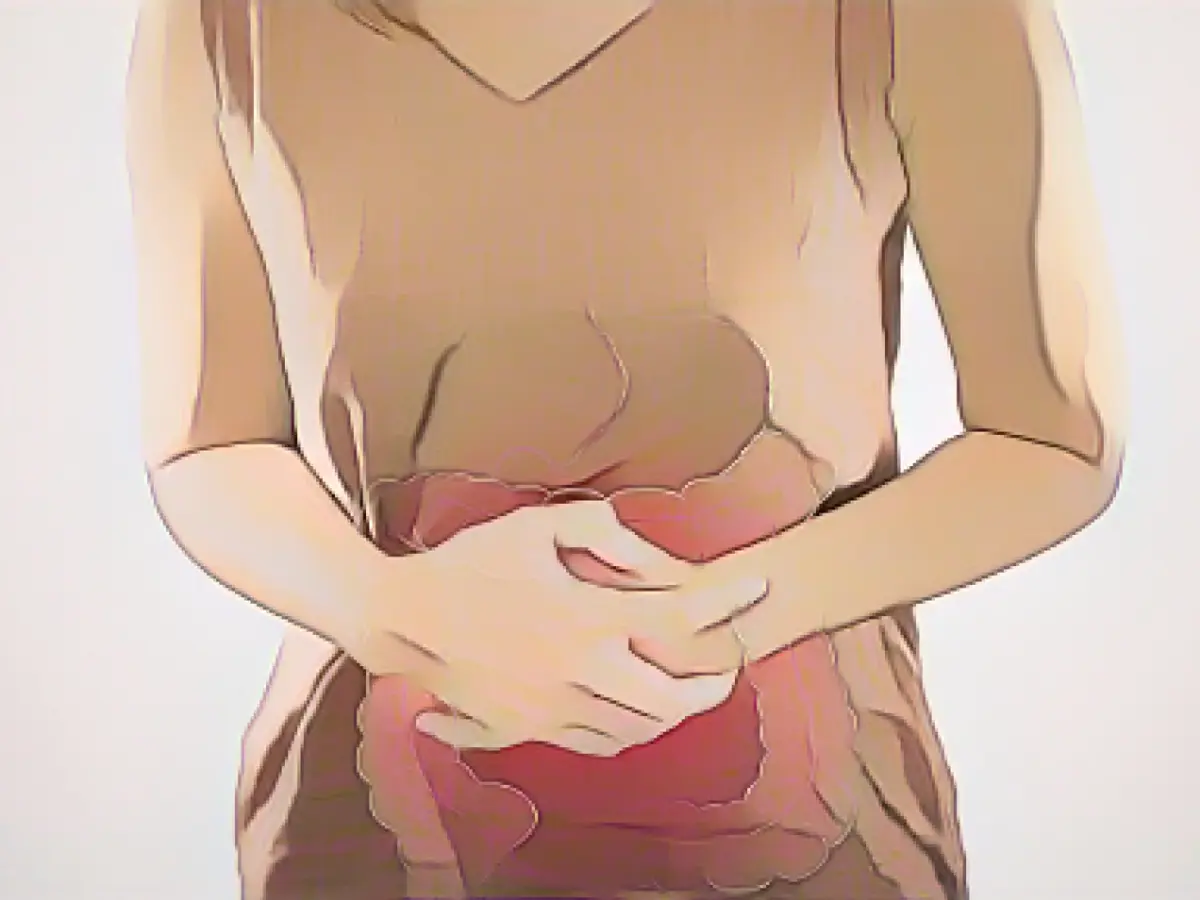Healthy gut - How does the intestinal flora affect our health? And how can we support it?
Digestion - probably still an unpleasant topic for most people. However, we should pay much more attention to our gut, including its hard-working bacteria and microorganisms.
Not all bacteria in our gut are beneficial. Some undesirable types of bacteria have a negative impact on the entire microbiome, affecting not only our digestion but also our overall well-being. Gut flora that has been disrupted by factors such as stress or poor diet can be seen in a weakened immune system, reduced resistance to pathogens and even mental health. But let's start from the beginning.
Even birth influences intestinal health
It's not just the circumstances of our lives that determine the environment in our gut. The exact composition of the intestinal flora is largely determined before birth. A number of beneficial microbes settle in a baby's gut during pregnancy and are transferred via the mother's placenta. These are supplemented by several trillion bacteria at birth. When the child is breastfed, the microbiome continues to build up via the mother's milk. For this reason, people who were born by caesarean section or who were unable to breastfeed tend to have more problems with their gut health. This manifests itself later in life in the form of allergies or intolerances.
The most important organ for the immune system
In total, there are around 100 trillion germs in the gut - and together they weigh up to two kilograms. The beneficial bacteria produce vital enzymes, vitamins and amino acids and 'filter' harmful substances that have been ingested with food. This makes the gut the most important organ for the immune system - after all, it regulates around 80 percent of all immune responses of the entire organism.
Anaerobic and aerobic bacteria
Anaerobic bacteria such as Bacteroides spp., Bifidobacterium spp., Lactobacillus spp. or Eubacterium are among the bacteria that are beneficial to health. Aerobic bacteria, on the other hand, such as E. coli or Enterococcus spp. are putrefactive and are usually only found in one percent of the intestinal flora.
Living conditions affect intestinal health
The balance of the intestinal flora can quickly become unbalanced. Constant physical and emotional stress, an unhealthy diet, lack of exercise and even medication such as antibiotics can have a negative impact on the microbiome. This can result in intestinal complaints of all kinds, such as autoimmune reactions (e.g. psoriasis), a weakened immune system and food intolerances. An imbalance also has an impact on mental health and weight. Among other things, the microbes control the production of important hormones and thus, via the gut-brain axis, neurological processes in the brain.
Targeted promotion of the microbiome
The importance of a healthy gut for our health should have become clear. However, it is all the more important to know how to nurture and care for it in order to achieve holistic well-being.
First of all, the triggers of the imbalance should be eliminated as quickly and as effectively as possible. If you often suffer from mental stress, it can be helpful to find an outlet to create a balance. Whether it's sport, meditation or special breathing techniques - it's important that the stress reduction method works for you. Get creative and try things out. Pottery, painting courses or regular massage treatments are just a few examples of how you can schedule regular time out. Regular exercise can do wonders for your digestion as well as reducing stress. It stimulates intestinal movement and promotes the transportation of food through the gastrointestinal tract.
It is also advisable to strengthen the intestinal flora after treatment with antibiotics. You can find out which foods are suitable for this in the next section.
The gut and diet
Our diet has an enormous influence on our intestinal health. No wonder, as food passes through our entire intestinal tract every day. Simple sugars, such as those found in white flour and refined sugar, can even promote the growth of bad yeasts. Sweeteners also disrupt the intestinal flora and inhibit the growth of beneficial bacterial strains. Highly processed sausage products can also irritate the intestinal mucosa. It is therefore advisable not to eat more than 500 grams of red meat per week. Low-quality fat sources such as margarine, lard or mayonnaise should also be avoided and healthy oils such as linseed oil, olive oil or hemp oil should be used instead.
Heroes of the intestinal flora
A varied diet with different types of fruit and vegetables, especially regional and seasonal ones, is the basis for a happy microbiome. There is also a range of fiber and plant-based substances that can positively promote intestinal flora. Foods rich in inulin, pectins and lactic acid bacteria support the growth of benign bacteria.
On the one hand,inulin stimulates the multiplication of bifidobacteria and lactobacilli. These in turn can develop special substances that have a beneficial effect on digestion, the intestinal mucosa and the pH value in the intestine. Asparagus, black salsify, chicory, artichokes and Jerusalem artichokes are particularly rich in natural inulin. However, there are now also special preparations and powders that contain inulin in concentrated form.
Fermented foods containing lactic acid naturally introduce lactobacilli into the intestine and also initiate the first digestive process. Sauerkraut, natural yoghurt, kombucha, miso and kimchi are valuable sources of probiotics.
Pectin, on the other hand, is a prebiotic that serves as food for the intestinal bacteria. It is found under the skin of fruit and vegetables and is particularly well absorbed in grated or pureed form. Oats and barley also contain beta-glucans, complex carbohydrates that help to form a protective gel that soothes the stomach and intestines.
Spices can also be true intestinal heroes. Turmeric stimulates the intestinal juices, ginger has a detoxifying effect. Chili, oregano and thyme have antibacterial properties.

Targeted therapy with intestinal bacteria
If the intestines are completely out of balance, for example due to prolonged stress situations or a course of antibiotics, a stool examination can provide relief after unsuccessful treatment with natural additives. The intestinal flora is analyzed in detail to identify any pathogenic bacteria, viruses or parasites and to check the composition of the microbiome. A doctor can then make treatment recommendations to specifically rebuild the microbiome with missing bacterial strains.
Read also:
- No food or coffee for three days, just juice, juice, juice instead: a field report
- 80 percent of young Germans eat sustainably
- Syphilis cases in babies are increasing dramatically
- Syphilis cases in babies are increasing dramatically
- The unhealthy presence of bacteria like E. coli in the intestinal flora can be a top health concern, as they can lead to various intestinal complications and even impact mental health.
- To maintain intestinal health, it's crucial to support the beneficial 'intestinal flora', which can be disrupted by factors such as stress, poor diet, or antibiotics use.
- Food plays a significant role in boosting intestinal health. Consuming foods rich in inulin, such as asparagus, artichokes, and Jerusalem artichokes, can stimulate the growth of beneficial bacteria like bifidobacteria and lactobacilli.
- Probiotic-rich foods like sauerkraut, natural yogurt, kombucha, and kimchi can also naturally introduce lactobacilli into the gut and initiate the digestive process, promoting overall gut health and well-being.
Source: www.stern.de








